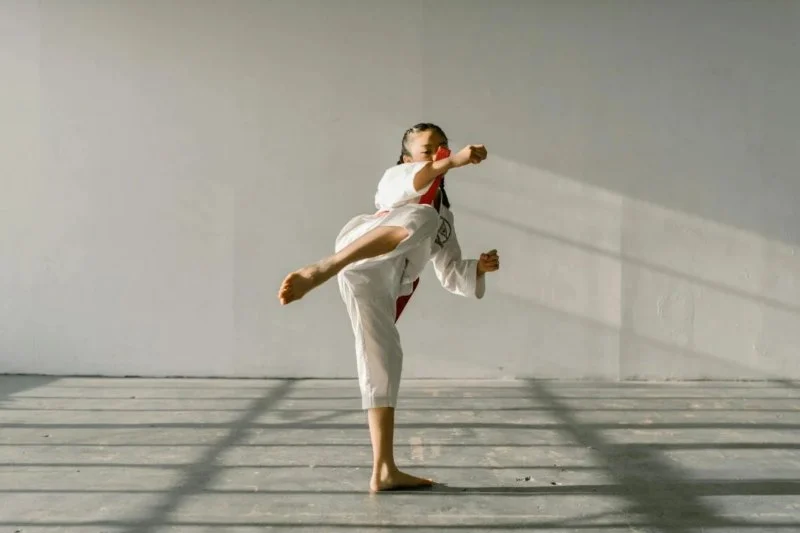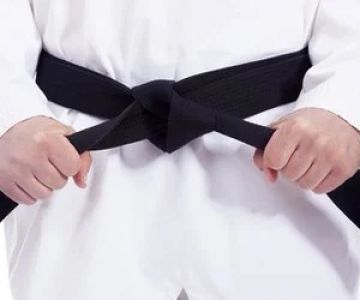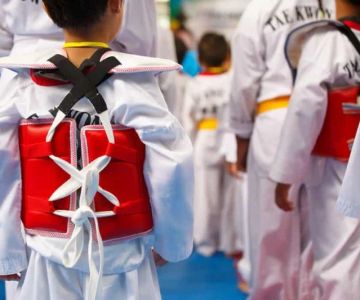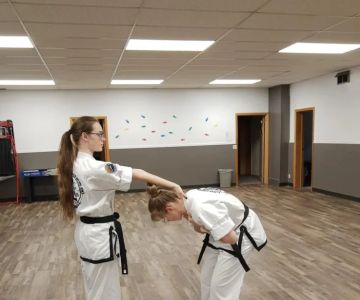
- 1 - The History of Tae Kwon Do in the Commonwealth Games
- 2 - Early Adoption of Tae Kwon Do in the Commonwealth Games
- 3 - Impact of Tae Kwon Do on the Commonwealth Sport Scene
- 4 - Notable Athletes and Their Achievements
1 - The History of Tae Kwon Do in the Commonwealth Games
The journey of Tae Kwon Do in the Commonwealth Games is one marked by milestones and fierce competition. Tae Kwon Do, originating from Korea, made its debut as an official sport in the Commonwealth Games in 2000. It has since become one of the most anticipated events in the multi-sport competition, showcasing the strength, speed, and precision of athletes from around the world.

Kwak’s Taekwondo / kwak taekwondo
Blue BellMontgomery CountyPennsylvania
1510 Dekalb Pike, Blue Bell, PA 19422, USA
1.1. The Integration of Martial Arts in Global Competitions
Martial arts like judo and boxing have been a part of the Commonwealth Games for years, but the inclusion of Tae Kwon Do marked a significant shift in the diversity of sports featured. This shift highlighted the growing influence of Asian martial arts on the global stage, as Tae Kwon Do became a sport that was not just about combat but also about discipline and form.
1.2. Official Recognition and Its Significance
In 2000, Tae Kwon Do earned its place in the Commonwealth Games, marking a historic moment for the sport. Its inclusion elevated the profile of martial arts competitions, emphasizing the cultural significance of Asian sports. With a focus on both Olympic-style sparring and traditional forms, the sport appealed to a broad range of athletes and fans alike.
2 - Early Adoption of Tae Kwon Do in the Commonwealth Games
Though Tae Kwon Do officially debuted in 2000, the groundwork for its inclusion was laid much earlier. The popularity of the sport across the Commonwealth, particularly in countries with significant Asian populations, played a critical role in its acceptance.
2.1. Early Push for Martial Arts Representation
The push for including martial arts like Tae Kwon Do began long before it was formally added to the Games. Advocacy from national and international martial arts organizations, particularly from countries like Malaysia, India, and Canada, helped to bring the sport to the forefront of discussions for inclusion in the Commonwealth Games.
2.2. The Role of Asian Countries in Popularizing the Sport
Asian countries, especially South Korea, where Tae Kwon Do originated, played a huge role in promoting the sport in the global arena. South Korea's government and sports organizations actively worked with other Commonwealth nations to introduce the sport, leading to its eventual debut in the 2000 Games.
3 - Impact of Tae Kwon Do on the Commonwealth Sport Scene
Since its introduction to the Commonwealth Games, Tae Kwon Do has had a lasting impact on the sporting landscape. It has contributed to the diversification of the event and brought martial arts to a wider audience.
3.1. Increasing Popularity of Martial Arts
Tae Kwon Do’s inclusion helped to increase the general public's interest in martial arts across the Commonwealth. This sport has inspired numerous young athletes to take up martial arts as a career, and it has also encouraged schools and organizations to offer martial arts training as part of their curricula.
3.2. Expansion of Martial Arts Events
The success of Tae Kwon Do in the Games paved the way for other martial arts to gain more prominence in global competitions. The inclusion of Tae Kwon Do influenced the growth of other martial arts events within the Commonwealth Games, including judo and boxing, allowing athletes from diverse backgrounds to showcase their skills.
4 - Notable Athletes and Their Achievements
The Commonwealth Games have been a platform for many talented Tae Kwon Do athletes to shine. Over the years, several competitors have earned gold, silver, and bronze medals, helping to cement the sport's place in the Games' history.
4.1. Notable Champions from the 2000 and 2004 Games
The first few years saw standout performances from athletes like Australia’s Erin McCaw, who claimed gold in the women’s 57kg weight category in 2000, and India’s Arun Kumar, who brought home a silver medal in the same event. Their victories not only brought pride to their nations but also demonstrated the competitive nature of Tae Kwon Do in the Commonwealth Games.
4.2. Success Stories from More Recent Games
More recently, athletes like England’s Bianca Walkden, a three-time World Champion, have continued to set the bar high in the sport. Walkden's dominance in the women's 67kg category in the 2014 and 2018 Games showcased the evolving strength and skill levels within the sport, particularly from nations with well-established Tae Kwon Do programs.
Conclusion
Since its debut in 2000, Tae Kwon Do has not only established itself as a key event in the Commonwealth Games but has also helped raise the profile of martial arts worldwide. Its growth within the Games reflects its universal appeal and the skill required to excel in the sport. As the years pass, it will be exciting to see how Tae Kwon Do continues to evolve and inspire the next generation of athletes.








 Fort Walton ATA Martial Arts4.0 (11 reviews)
Fort Walton ATA Martial Arts4.0 (11 reviews) Universal Warrior Mixed Martial Arts4.0 (27 reviews)
Universal Warrior Mixed Martial Arts4.0 (27 reviews) Team Pure Fitness4.0 (27 reviews)
Team Pure Fitness4.0 (27 reviews) Heart & Dagger BJJ5.0 (112 reviews)
Heart & Dagger BJJ5.0 (112 reviews) Twin Tigers Martial Arts5.0 (38 reviews)
Twin Tigers Martial Arts5.0 (38 reviews) Champions Martial Arts Upper East Side5.0 (51 reviews)
Champions Martial Arts Upper East Side5.0 (51 reviews) How to Execute a Jumping Roundhouse Kick to the Head
How to Execute a Jumping Roundhouse Kick to the Head How to Execute a Double Kick Combination in Sparring
How to Execute a Double Kick Combination in Sparring How to Perform a Flawless Axe Kick: A Step-by-Step Guide
How to Perform a Flawless Axe Kick: A Step-by-Step Guide DIY Tae Kwon Do Training Equipment for Home Practice
DIY Tae Kwon Do Training Equipment for Home Practice How to Increase Your Vertical Jump for Tae Kwon Do Flying Kicks
How to Increase Your Vertical Jump for Tae Kwon Do Flying Kicks The History of the Tae Kwon Do Peace Corps
The History of the Tae Kwon Do Peace Corps